About Pascale
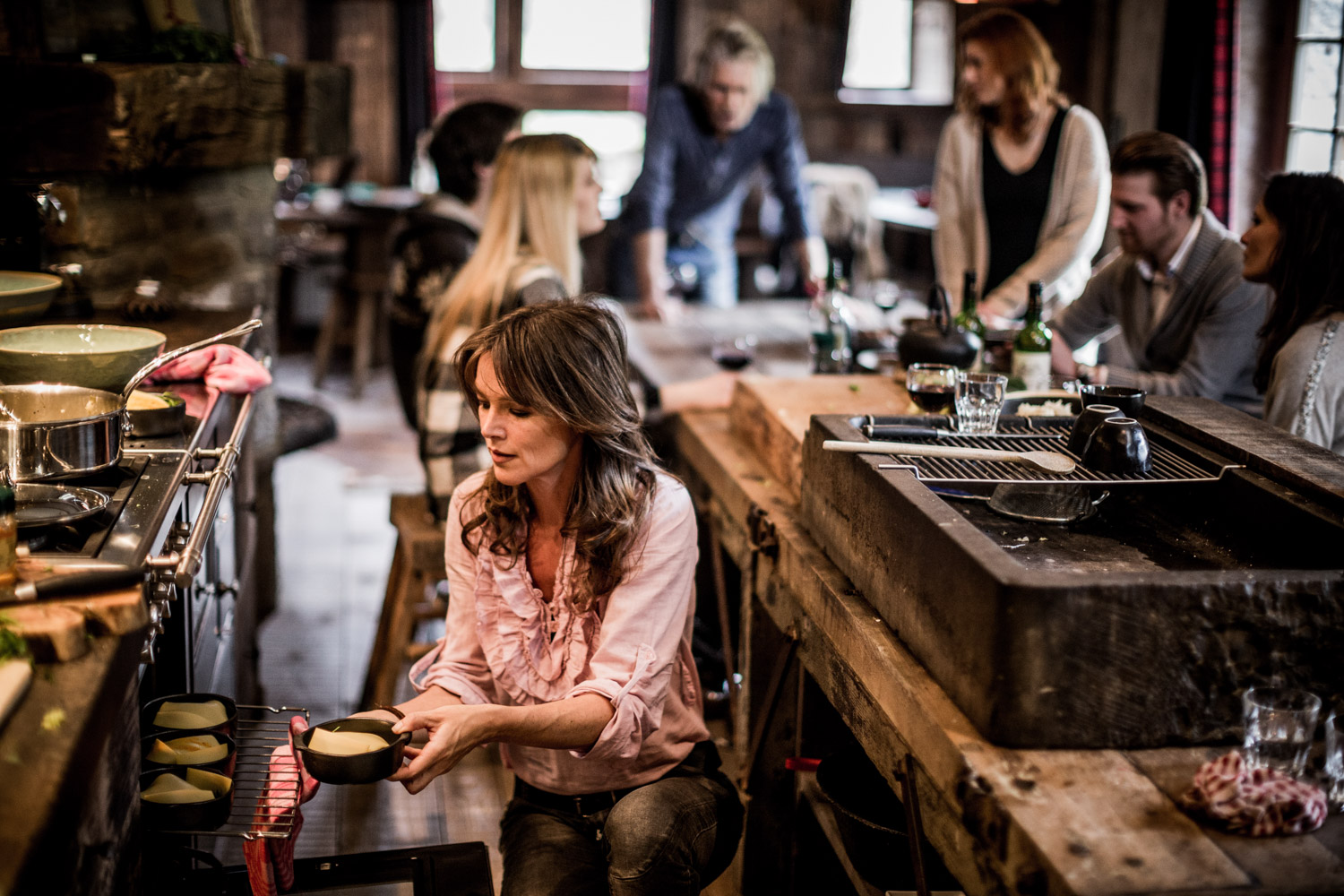
Pascale Naessens is a cookbook author, nutritionist, ceramist/designer.
Nutritionist
Pascale Naessens is the best-selling culinary author in the Dutch-speaking area. She is the figurehead of pure and healthy food. Several of her books have since been translated into French, English, German and Chinese.
As a young adult, Pascale struggled with an eating problem; she has been passionate about nutrition ever since. 'What does nutrition do to your body? What does nutrition do to your brain?' For more than 30 years, she has followed food science closely.
In Flanders, she has made healthy eating accessible to the general public. Some 13 years ago, she stood on the barricade to call more attention to healthy fats and to be careful with the use of flour (bread) and potatoes. Her vision, which was at odds with classical nutrition science, provoked many reactions. But it is mainly the success stories of her readers that attracted and still attract attention.
"People lose weight while still eating well and not going hungry."That is a relief to many!
Partly under pressure from the success of Pascale Naessens' books, Kris Verburgh's book, "De voedselzandloper," and especially the enthusiastic public, the general dietary guidelines in Belgium have been adjusted and the food triangle has literally been turned upside down. Vegetables and fruits are recommended over bread and potatoes, and there is also room for oils and fats.
"Pascale was the pioneer in Flanders, she brought healthy eating to the general public through her simple recipes and attractive books."
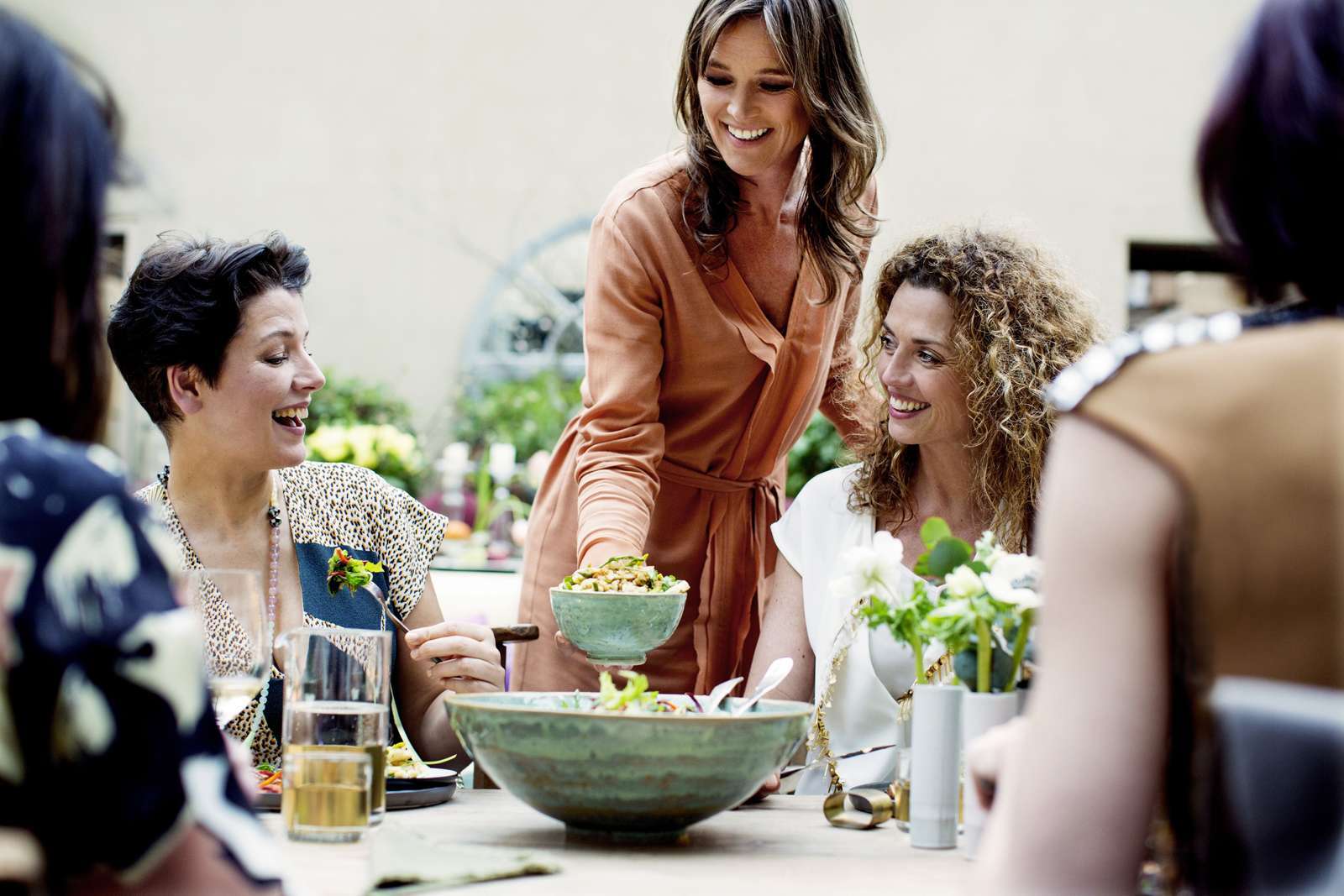
"At the time when all nutritional advice posited that fats were unhealthy, Pascale Naessens proposed a nutritional vision that claimed the opposite. She thoroughly studied the effects of nutrition on health, but got wind of the traditional science. But lo and behold, last year several organizations updated their guidelines. They now confirm what Naessens has been preaching for years: olive oil, nuts and oily fish are healthy."
- VUB professor Reginald Deschepper
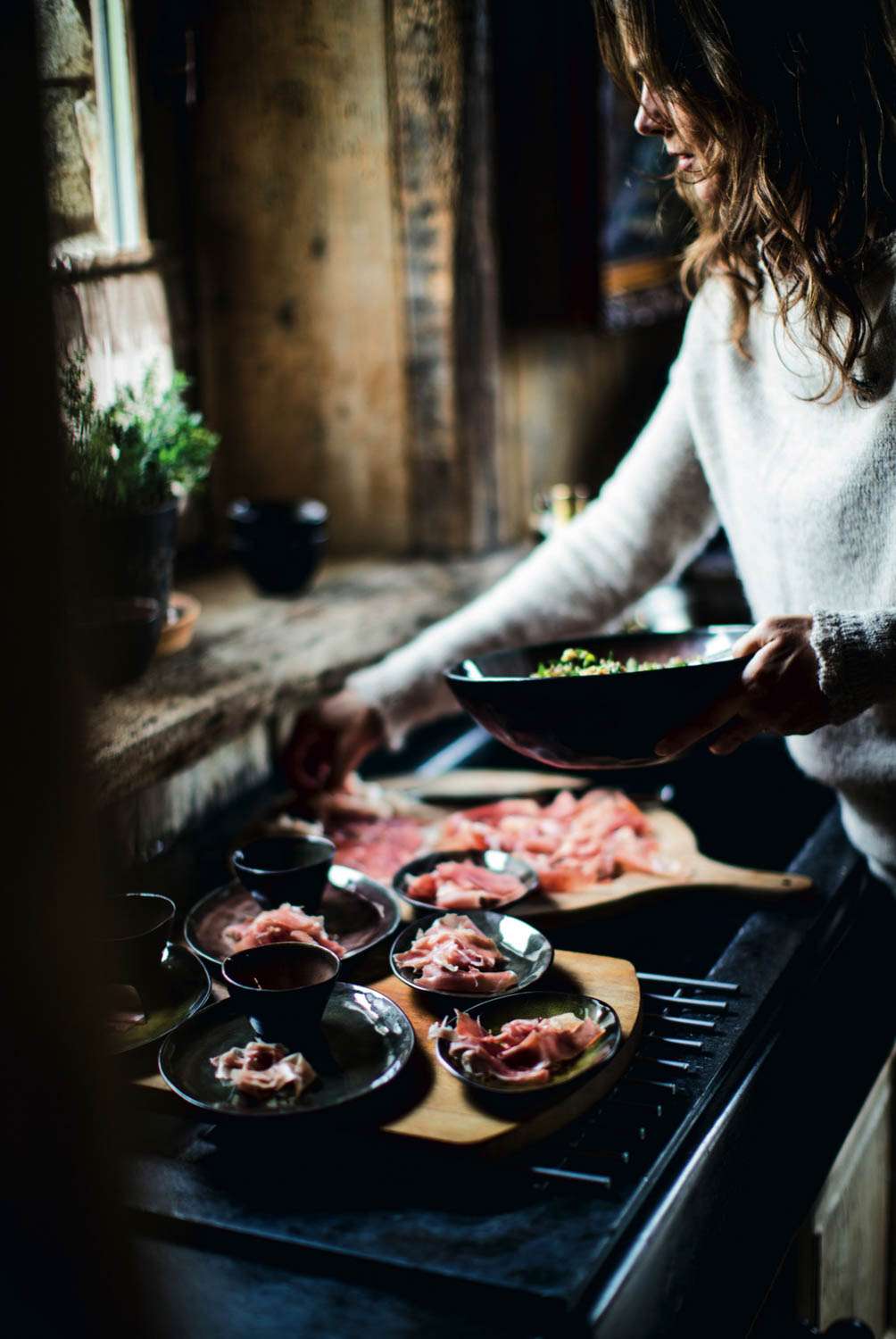
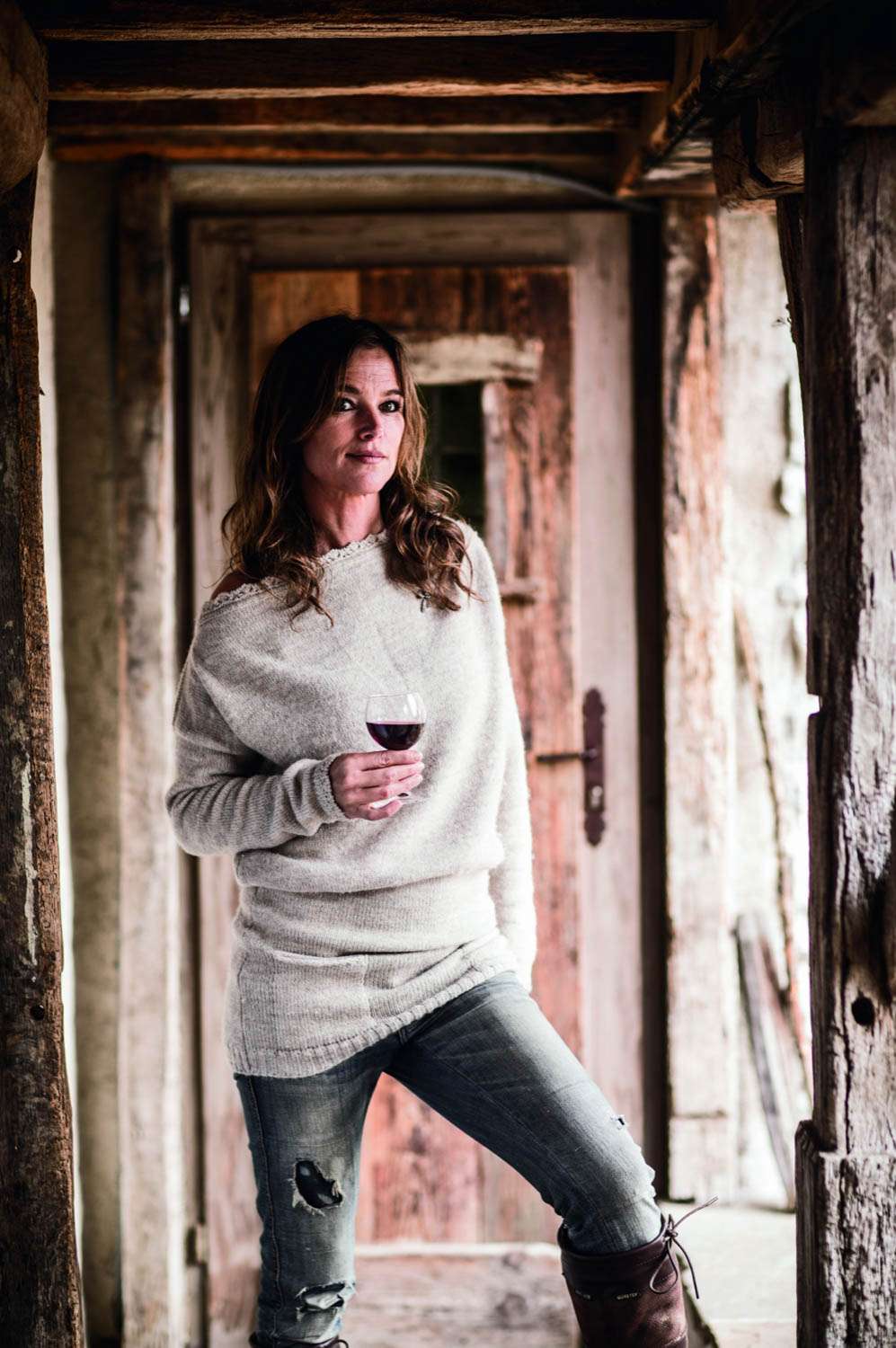
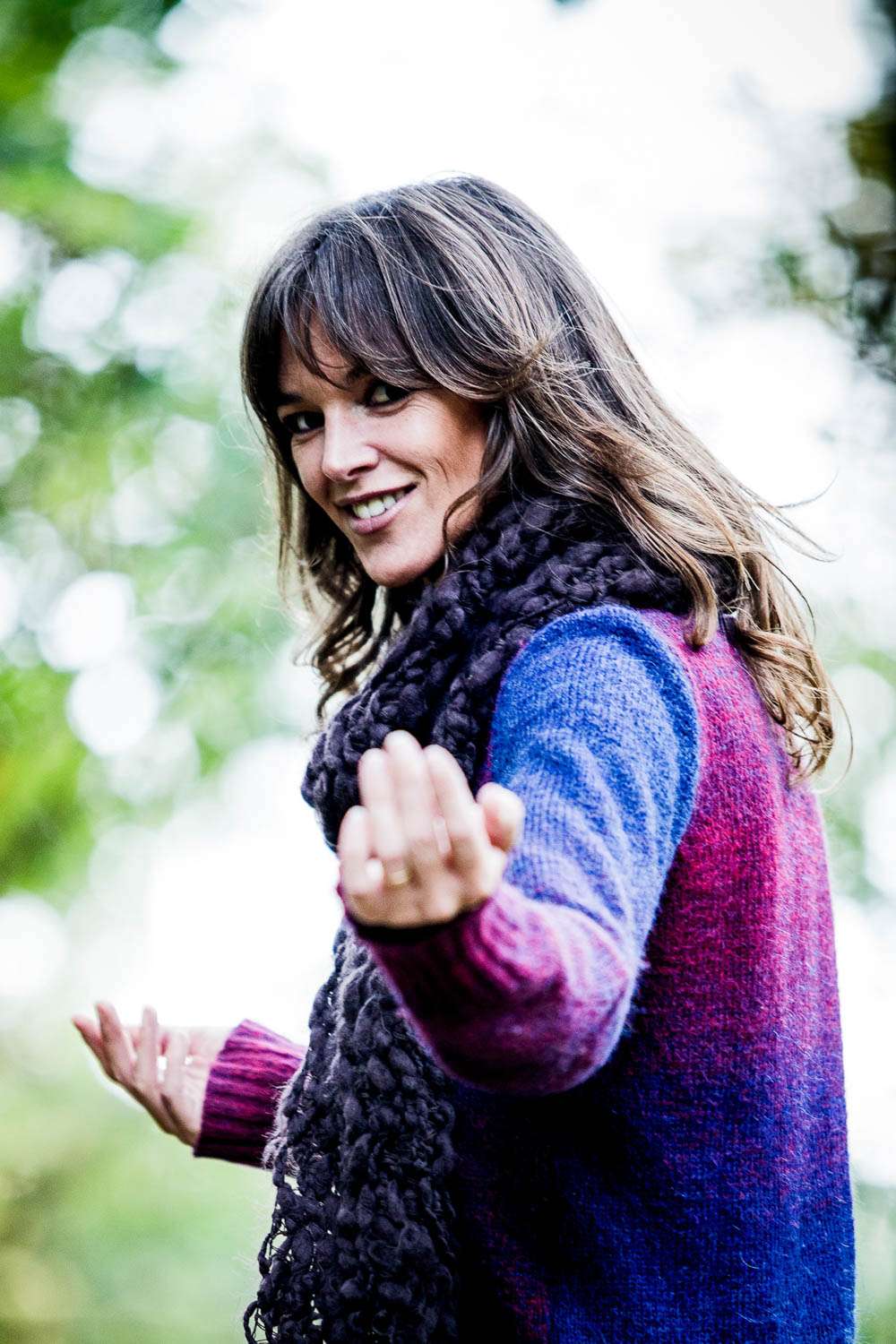
With the success and growing science surrounding "low-carbohydrate eating," even classically trained experts are now no longer reluctant to do so.
Meanwhile, Pascale has written more than 15 cookbooks, including several co-authored with scientists. Pascale Naessens provides recipes for Tufts University publications, the health platform Diet Doctor, Libelle Lekker, etc., among others. Her books are recommended by several health authorities, including "Living Fully with Diabetes. A list of experts who also support the low-carb vision and recommend her books can be found here.
"My own flawed experience with nutrition and interviews with leading food scientists have given me an extraordinary amount of insights, which I share through my books."
- Pascale Naessens
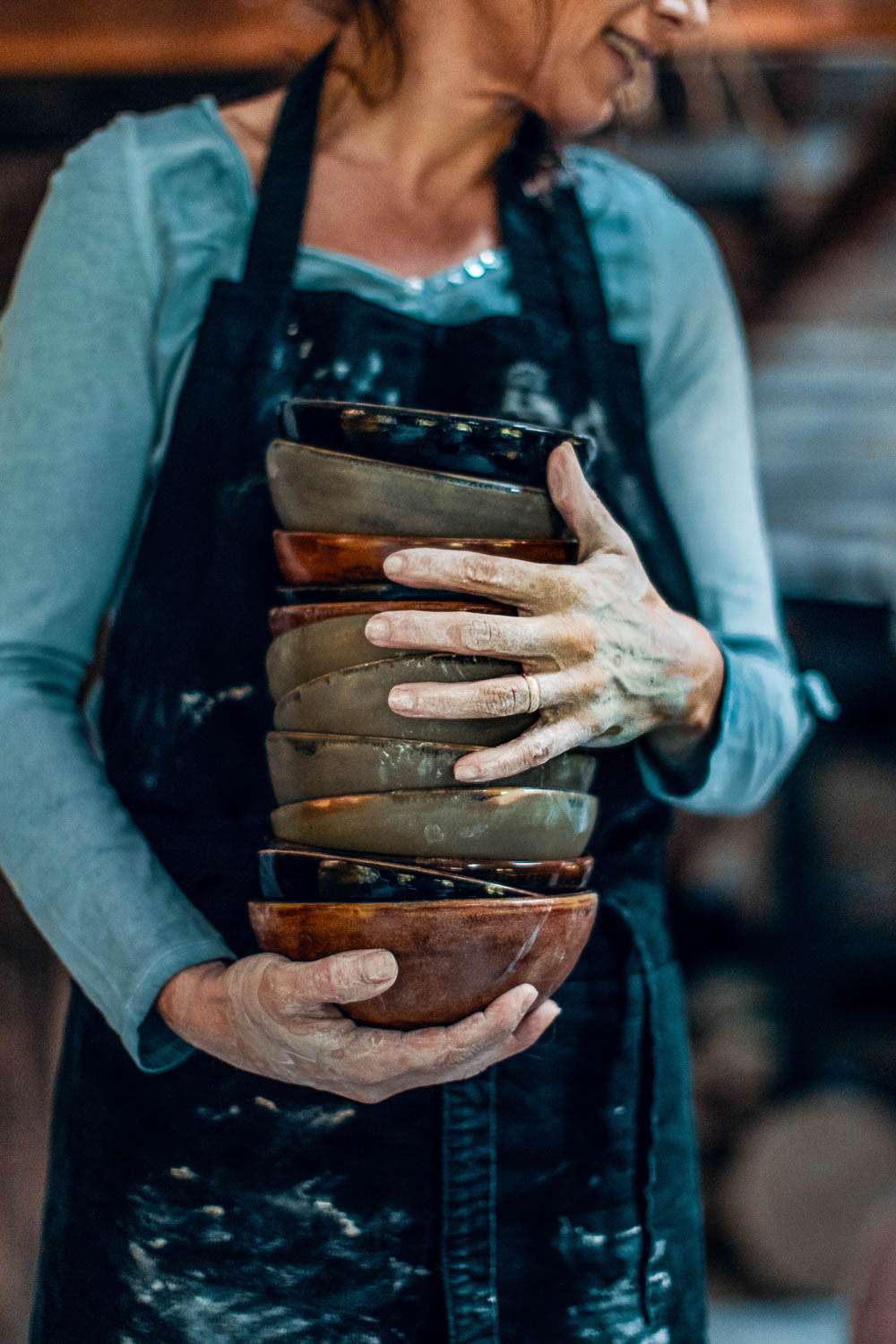
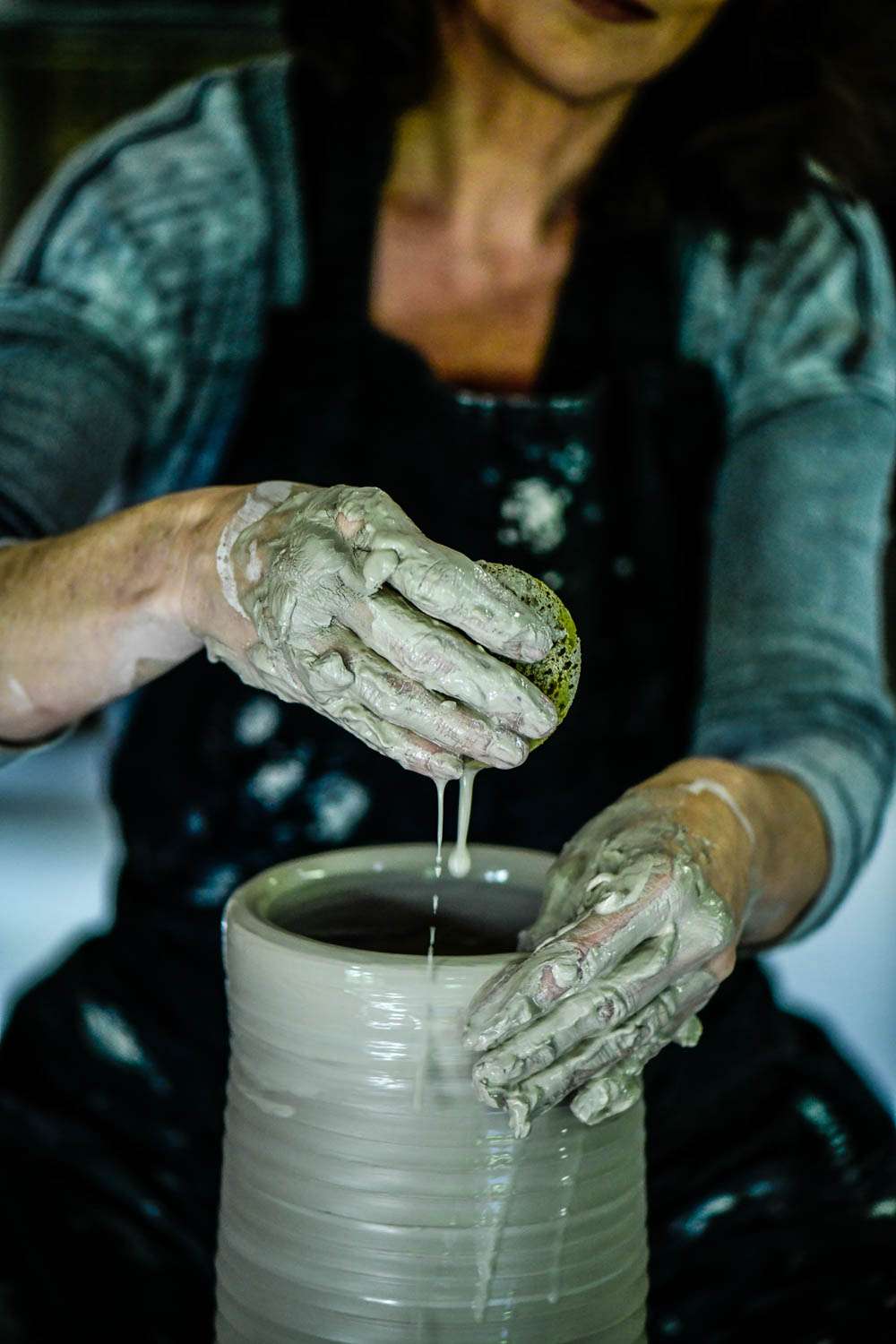
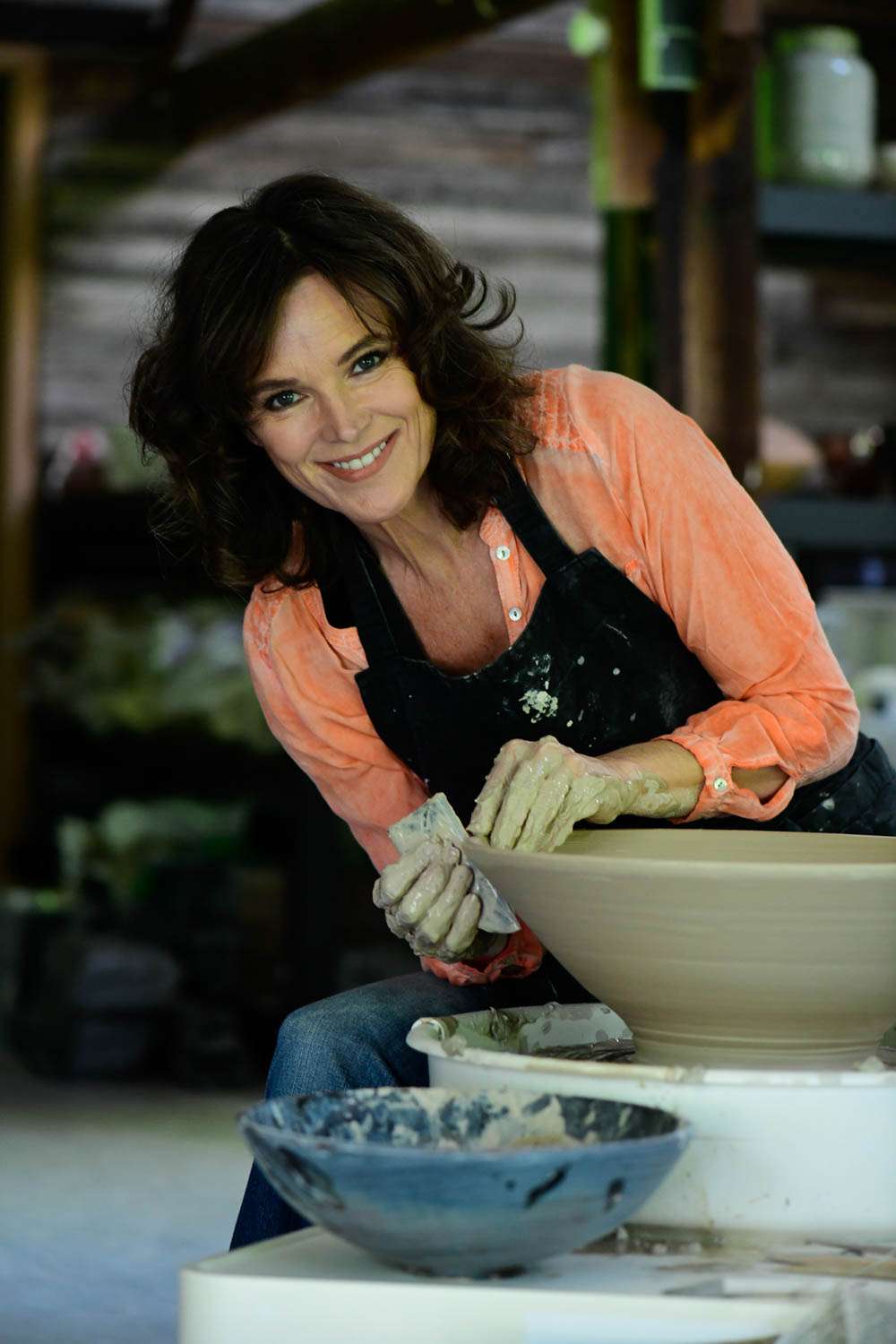
Ceramicist/designer
She is also renowned as a ceramist. Pure by Pascale Naessens for Serax is sold all over the world. Both housewives and top restaurants (Pure C, Boury and the world-famous London restaurant Hakkasan) serve on Pascale Naessens' plates.
Pascale could not find a more beautiful interplay between food and ceramics. It is her belief that "creativity" makes one happy. She has found that creativity in the kitchen, conjuring up flavors, textures and colors and making the matching plates for them. A ceramist for 20 years, she has been working with Serax for years. In the meantime, she has been able to expand her universe to include tableware, kitchenware and interior items.
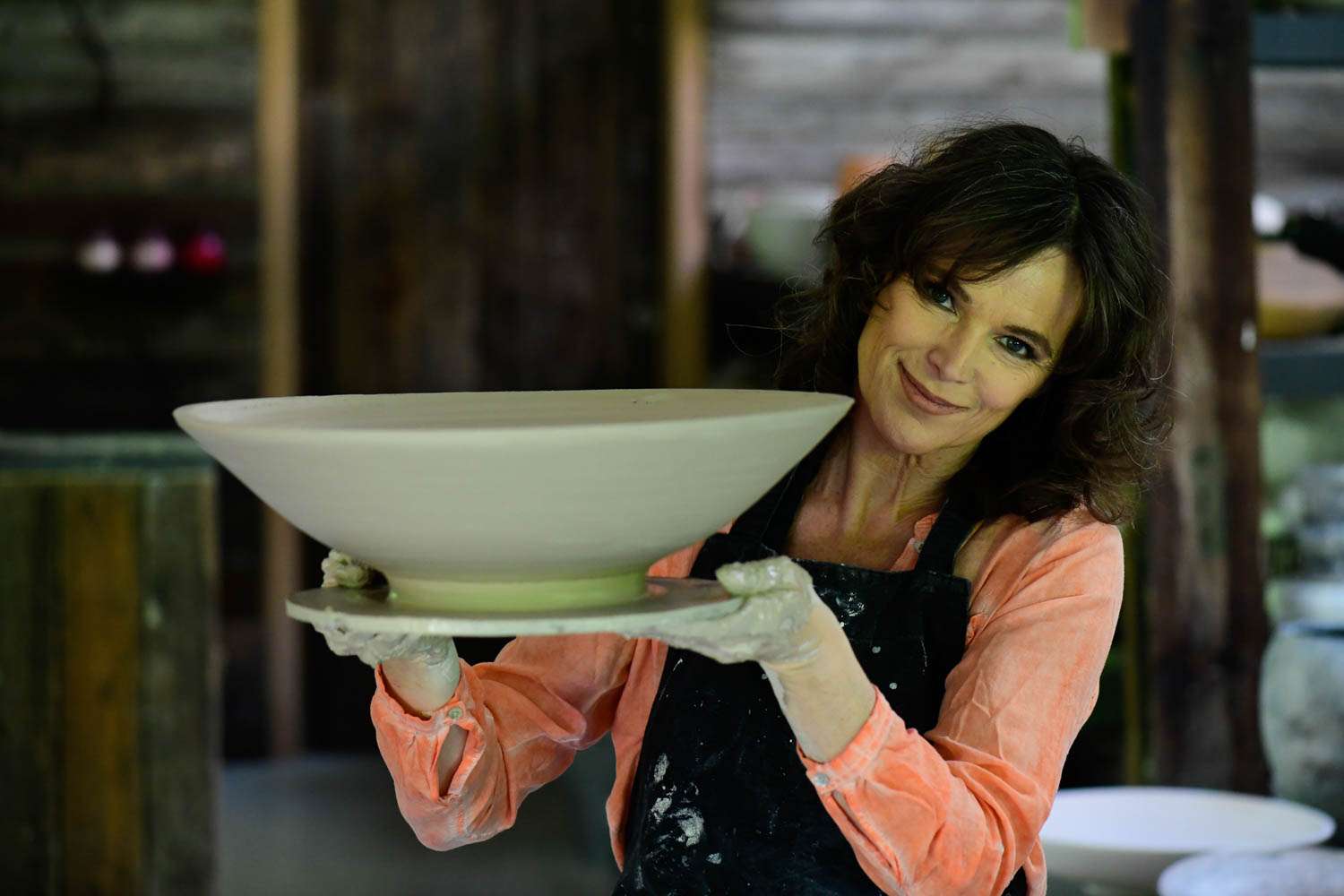
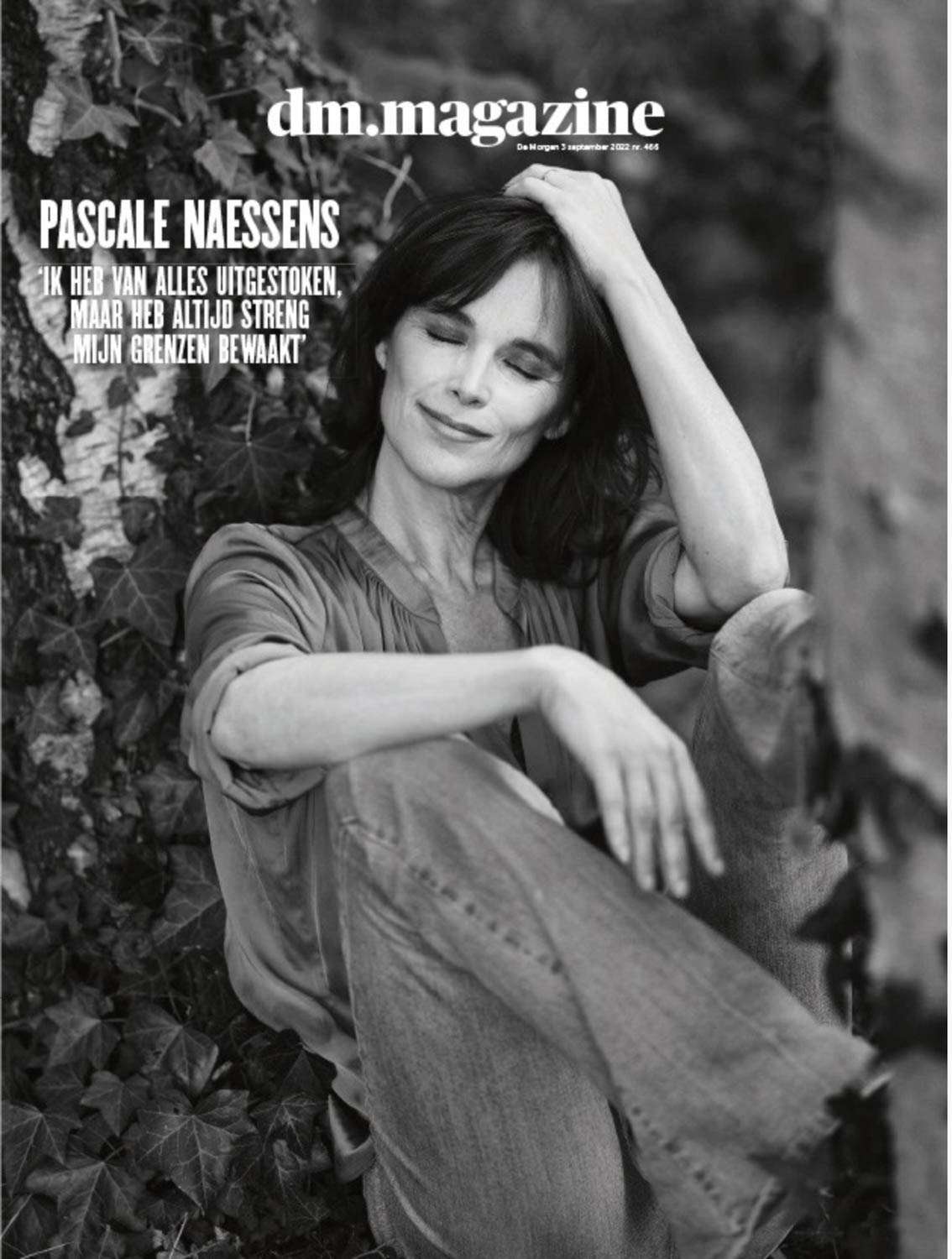
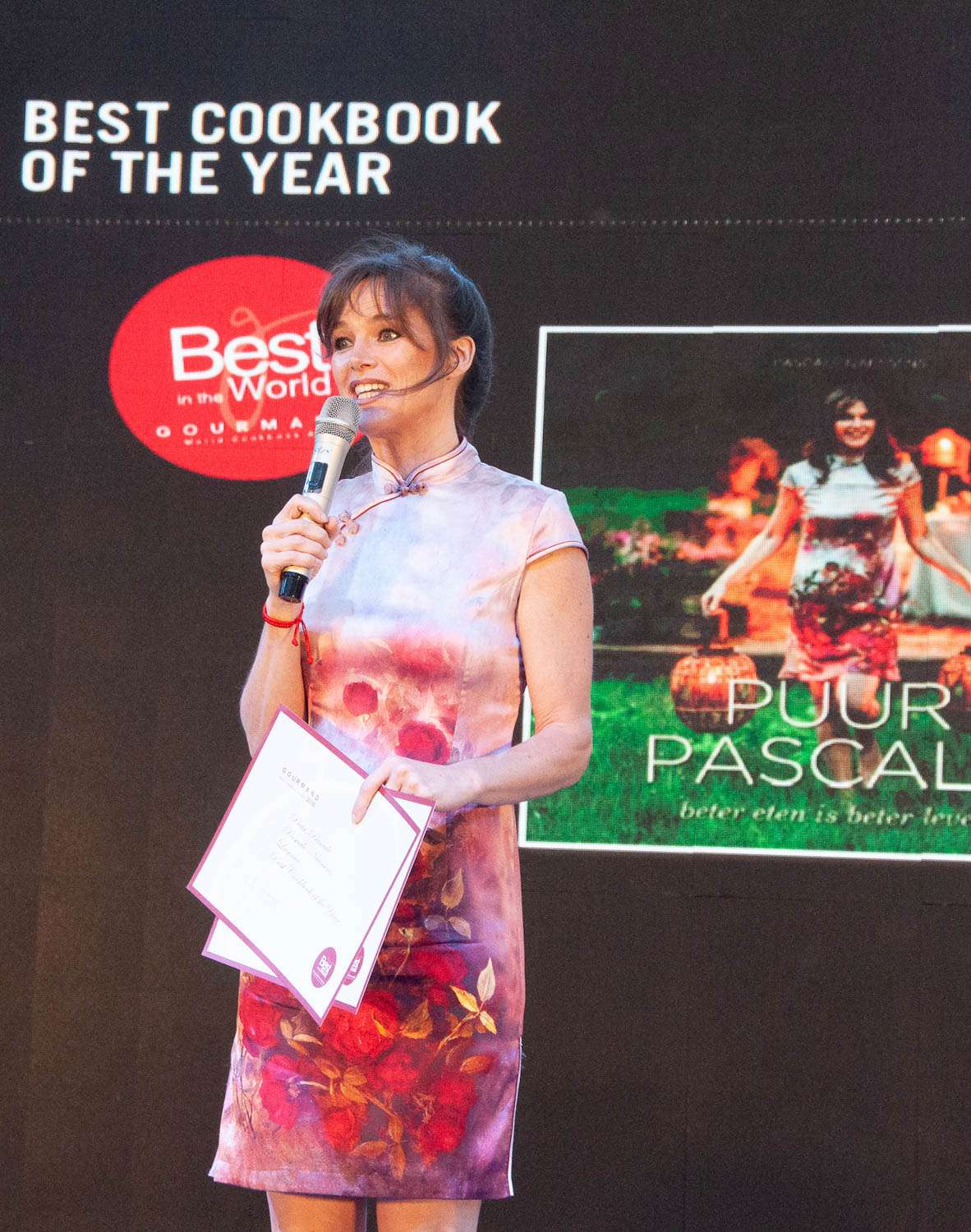
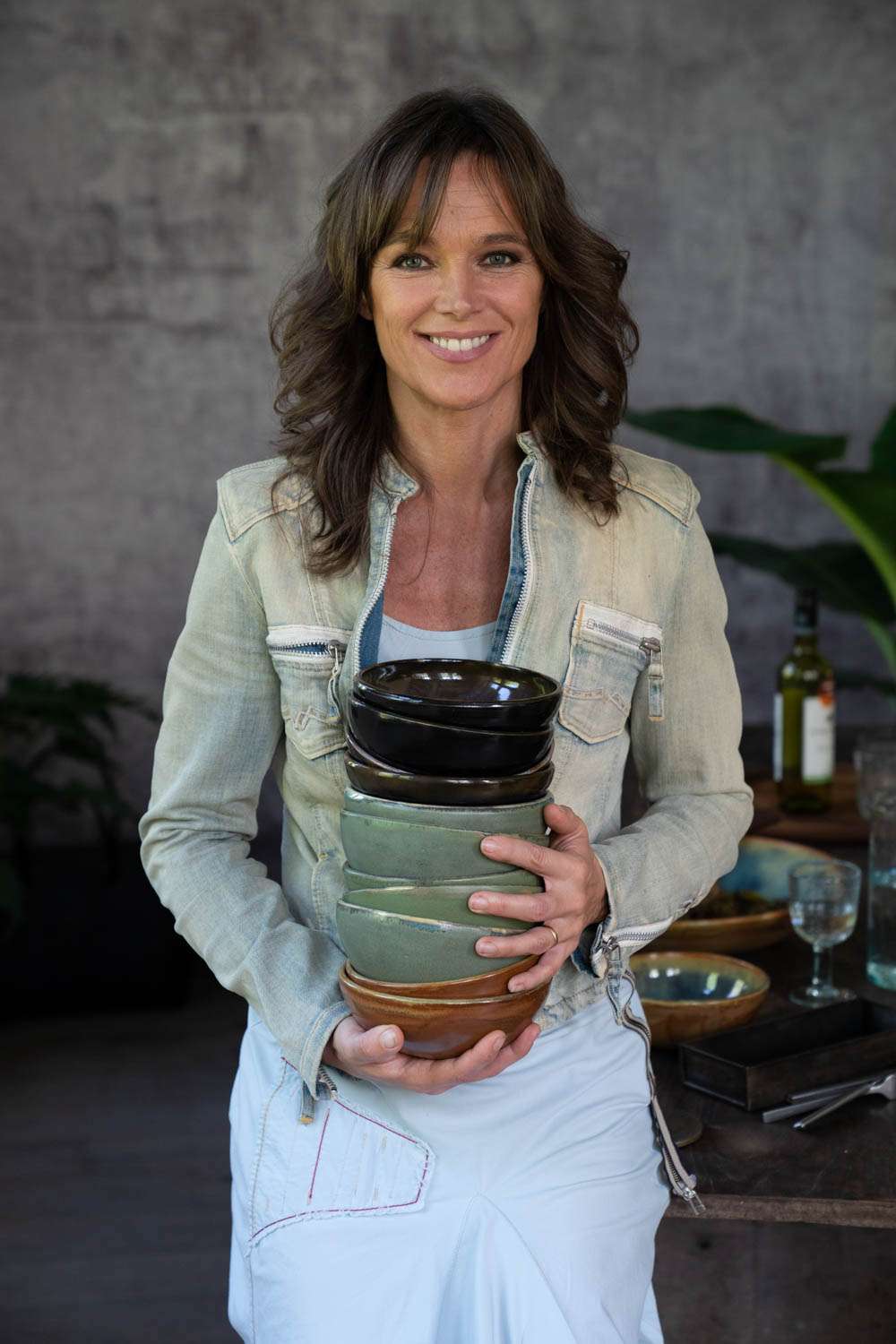
Bio Pascale Naessens
After studying Economic Sciences, Pascale Naessens travels the world as an international photo model at the age of 18. After five years of wanderings in Paris, Milan, Madrid, Hong Kong, China and Tokyo, she chooses Belgium again. Here she begins her television career at VTM as a broadcaster and presenter of living programs, tourist sailing programs Jambers Odyssey and most recently 'De Schaal van Pascale', a program looking for the best amateur potter.
Besides architecture and interior design, cooking and health are her passions. She wants to delve into them because she herself had problems with her eating habits. Inspired by her travels to the Far East, she trains as a consultant in healthy lifestyles based on traditional Chinese medicine, practices Tai Chi and obtains her certificate as a shiatsu therapist and nutritionist. She is also training as a restaurateur and taking several cooking courses, from macrobiotic cooking to classes in top restaurants. Meanwhile, she works on her skills as a ceramist.
In 2010, her first book was released, a cookbook with a light philosophy. It is not a diet but a way of eating. Call it a lifestyle. Her book is an instant hit. Meanwhile, she has published fifteen books, all of them bestsellers. All have topped the sales charts at number one and still do.
Every year she organizes a challenge that has grown into "Go Pure Masterclasses. It is an online health platform, inviting people to eat and live healthily together for a week. Participants receive recipes, cooking videos, exercise videos and educational interviews with health experts to gain insights and experience what a healthy lifestyle does to you. The "Go Pure Master Classes" are a great success every year and take place in September.
Making ceramics, writing books, interviewing nutritionists and organizing the "Go Pure Masterclasses" are her main activities. She is also a sought-after speaker.
Pascale Naessens is an exceptionally driven creative jack-of-all-trades and an inspiration to many others involved in healthy eating and ceramics.
My cooking style
"The best compliment I get regularly: 'thanks to your recipes, I love to cook (again).'"
Cooking with my books is a pleasure: little work, exceptionally flavorful dishes and with every bite you become healthier. Those who are overweight will lose weight. In this way, preparing and eating food becomes a pure pleasure.
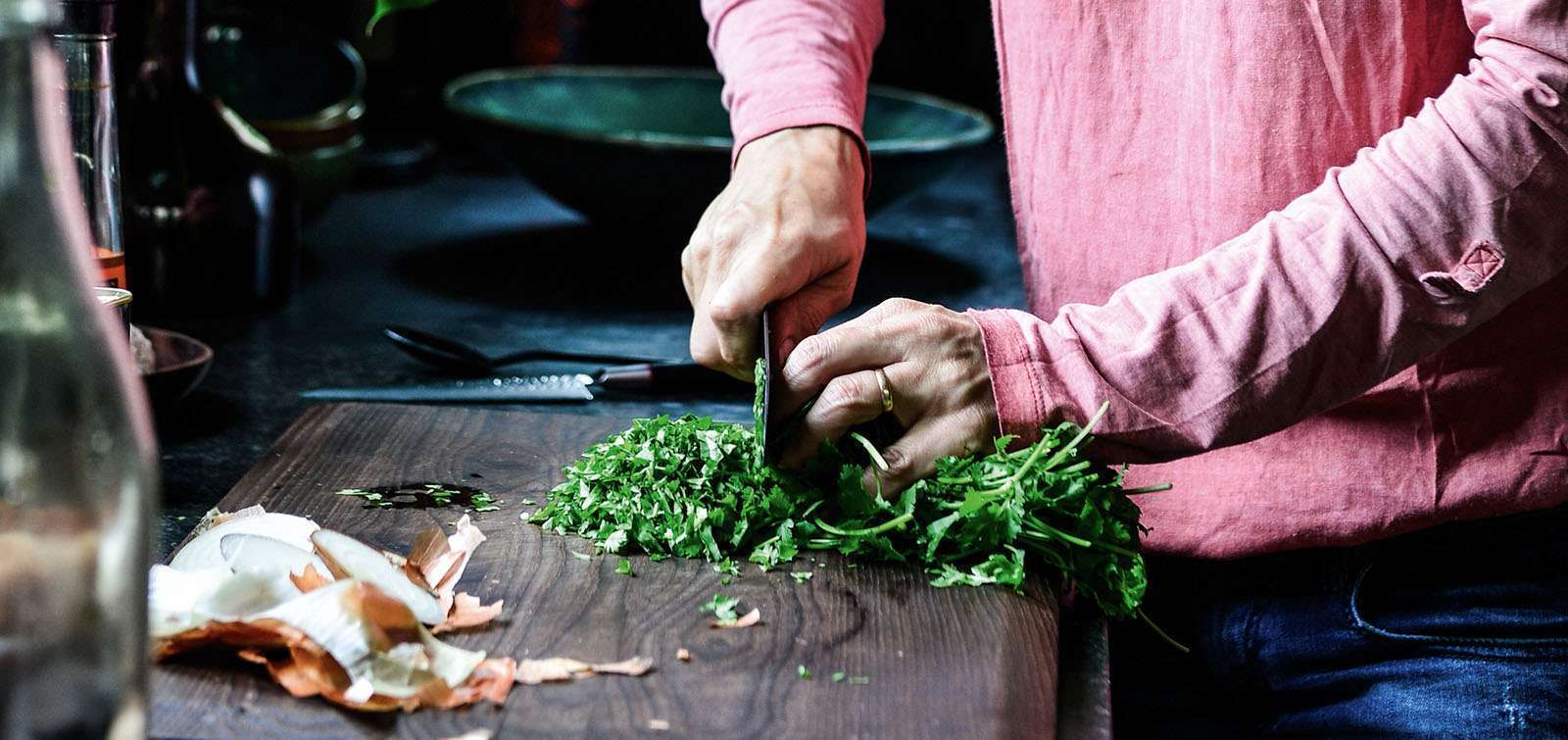
My recipes are popular because of a number of reasons:
- They are particularly delicious (also because fat is allowed),
- easy to prepare (with few ingredients),
- Good for health and the line (scientifically substantiated) and
- A delight to the eye (makes you happy).
What do you find a lot in my recipes:
- unprocessed natural foods such as vegetables, fruits, olive oil, oily fish, nuts, seeds, whole yogurt, chicken, eggs, ...
What you won't (or won't find much of) in my recipes:
- Flour and sugar (products made from refined flour, such as plain bread, pasta, dough, etc.)
- Refined factory foods
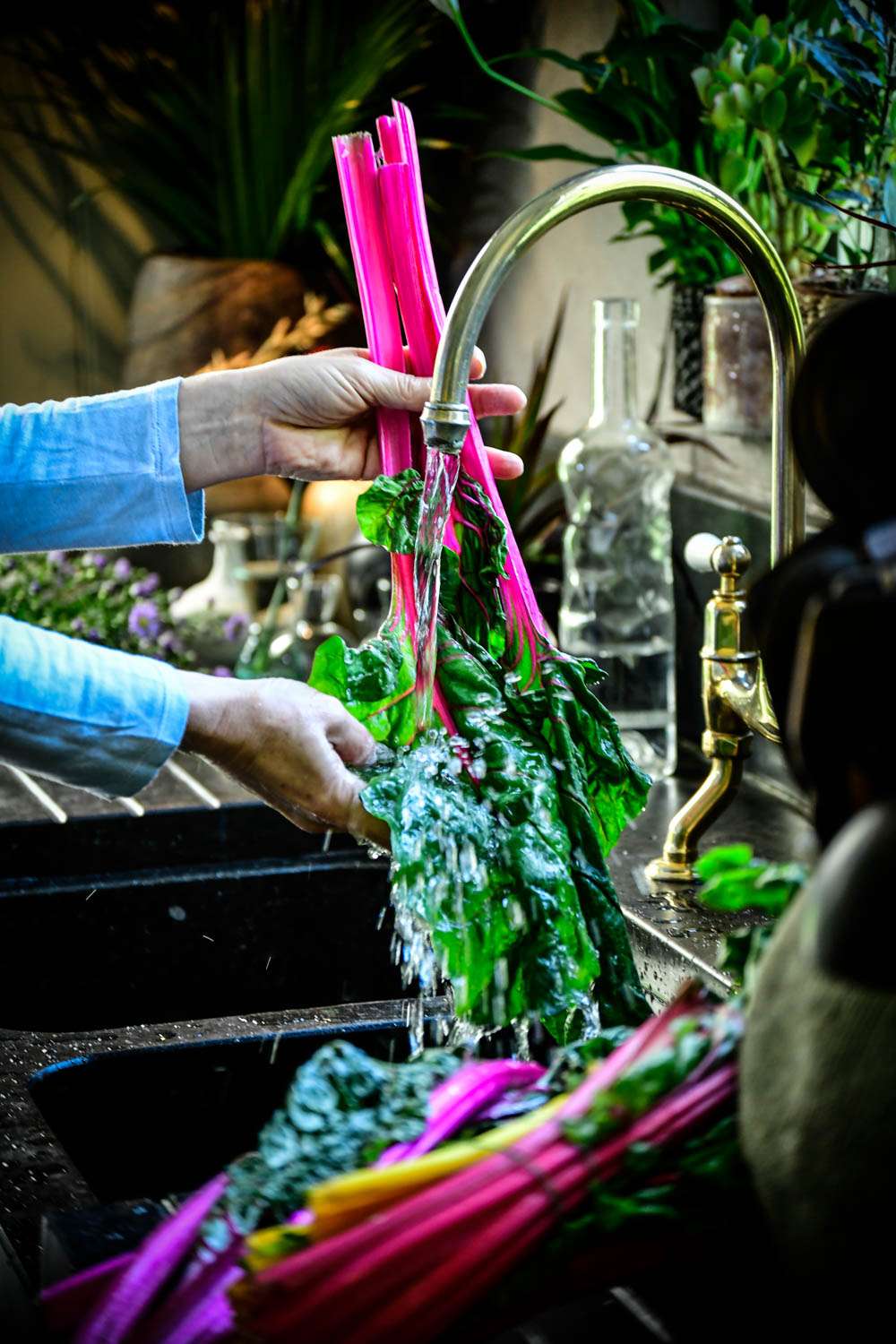
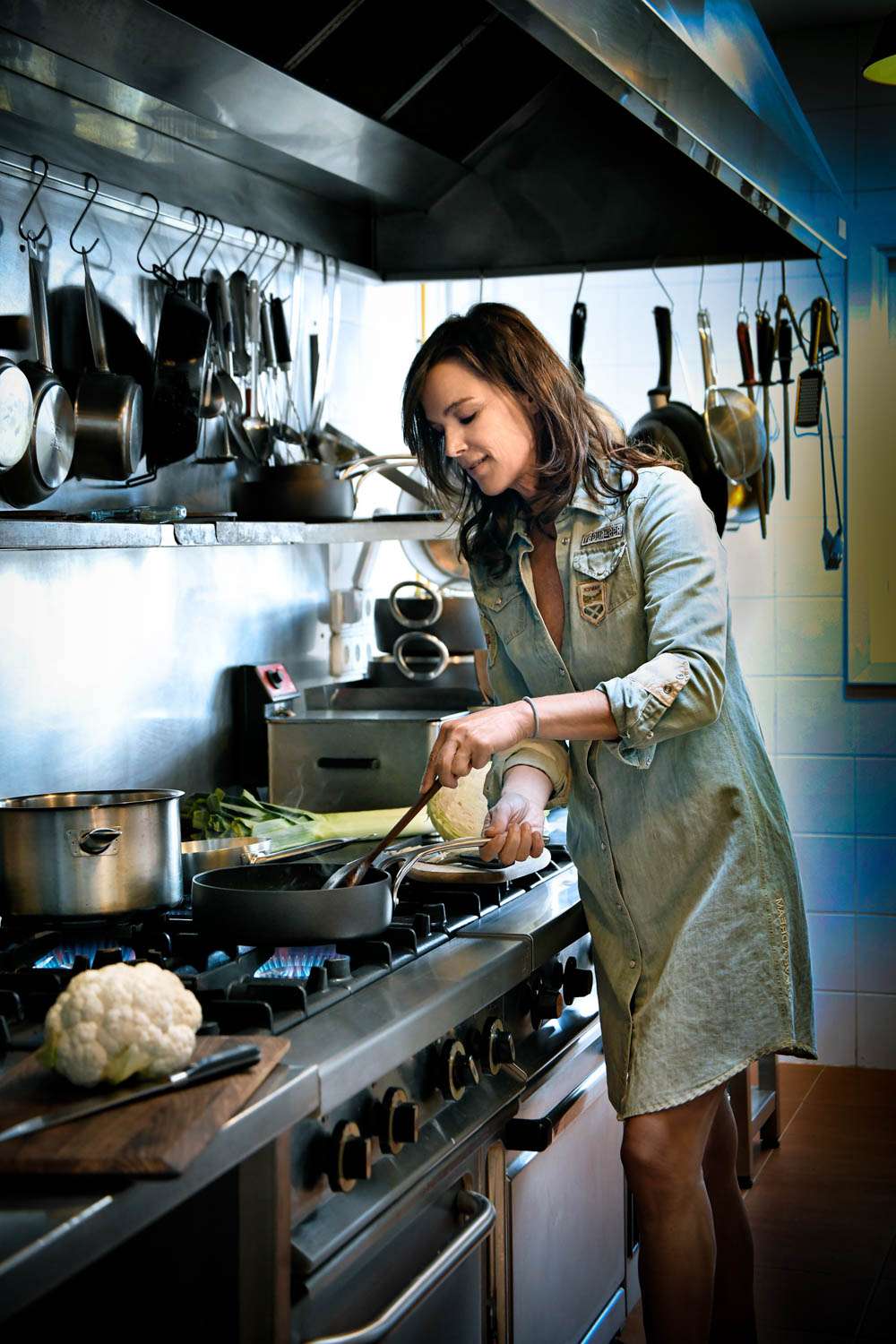
In practice, it comes down to this.
I replace bread, white rice, pasta and potatoes with an extra serving of vegetables with a generous splash of olive oil. A much healthier combination that really satiates you. No blood sugar spikes and more fiber and fats that are good for your gut and brain. In that sense, my way of eating aligns with the great low-carb movement.
One more thing...
I don't mind at all if people do eat potatoes or bread with my dishes at home. I'm not the "Pure Food Police. I'm not going to come knocking on your door. Everyone can have their own health journey and everyone fills it out the way they want. If my recipes can inspire you, then I'm happy. And if I may give a tip: eat the potatoes at the end of the meal, then they are absorbed slower and don't give such a big sugar spike.
The difference between the classical view (fewer calories) and the modern view of nutrition.
"Eating healthy is not for everyone. Some people don't want to or can't. Everyone has to freely make the balance for themselves. For me, the choice is easy, it's eat like this or lie depressed in the couch all day."
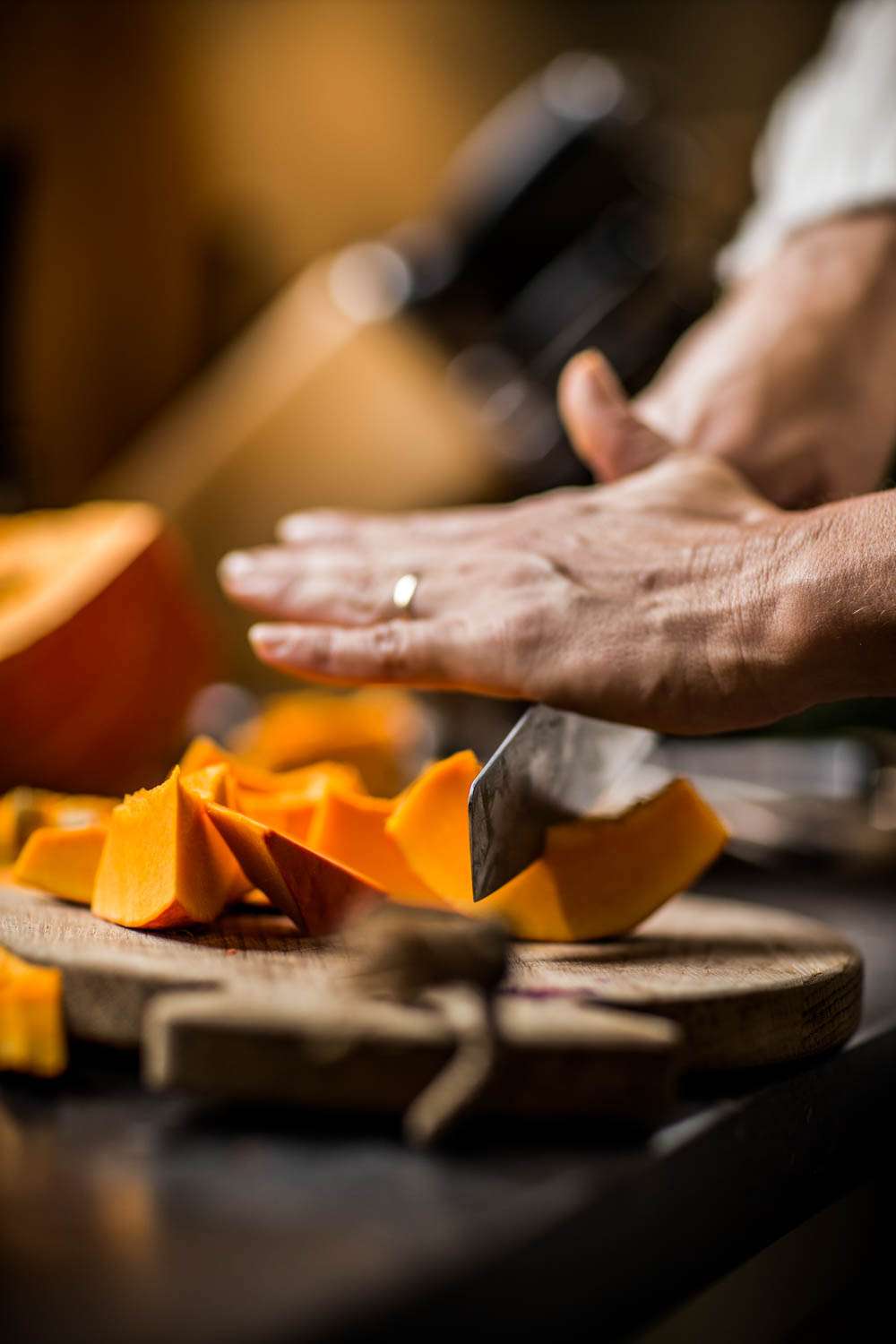

Anyone can cook with my recipes.
Many people who want to lose weight already have a history of dieting. They mostly fail because they are constantly hungry and crave food. My cooking, on the other hand, is filling and tasty. That makes it easy to stick with it and keep the pounds off.
"Slimming down is something anyone can do, but the most important question is: Can you maintain your new way of eating and keep the pounds off?"
Practical tips from Pascale
Home
- Replace your bread breakfast with a fruit breakfast.
- Replace your potatoes at meals with an extra serving of vegetables and pour a generous splash of olive oil over them.
Restaurant
- Ask the waiter not to put a bread basket.
- Choose a fish or meat dish and ask to replace the potatoes with an extra portion of vegetables and sauce.
Buffet
- Go for the vegetables first, filling at least half of your plate with these.
- Choose fish, meat, cheese or whole grains.
- Supplement with sauce.
Don't think in terms of "is that allowed? Everything is allowed! But think in terms of possibilities, insights ... if you understand the science around "sugar spikes" and what they trigger in your body and how to prevent them, then everything becomes much easier and more interesting.
"Replace the potatoes with an extra serving of vegetables with a good splash of olive oil. That way you get more fiber, nutrients and fat that really satiate you and are good for your gut and brain."
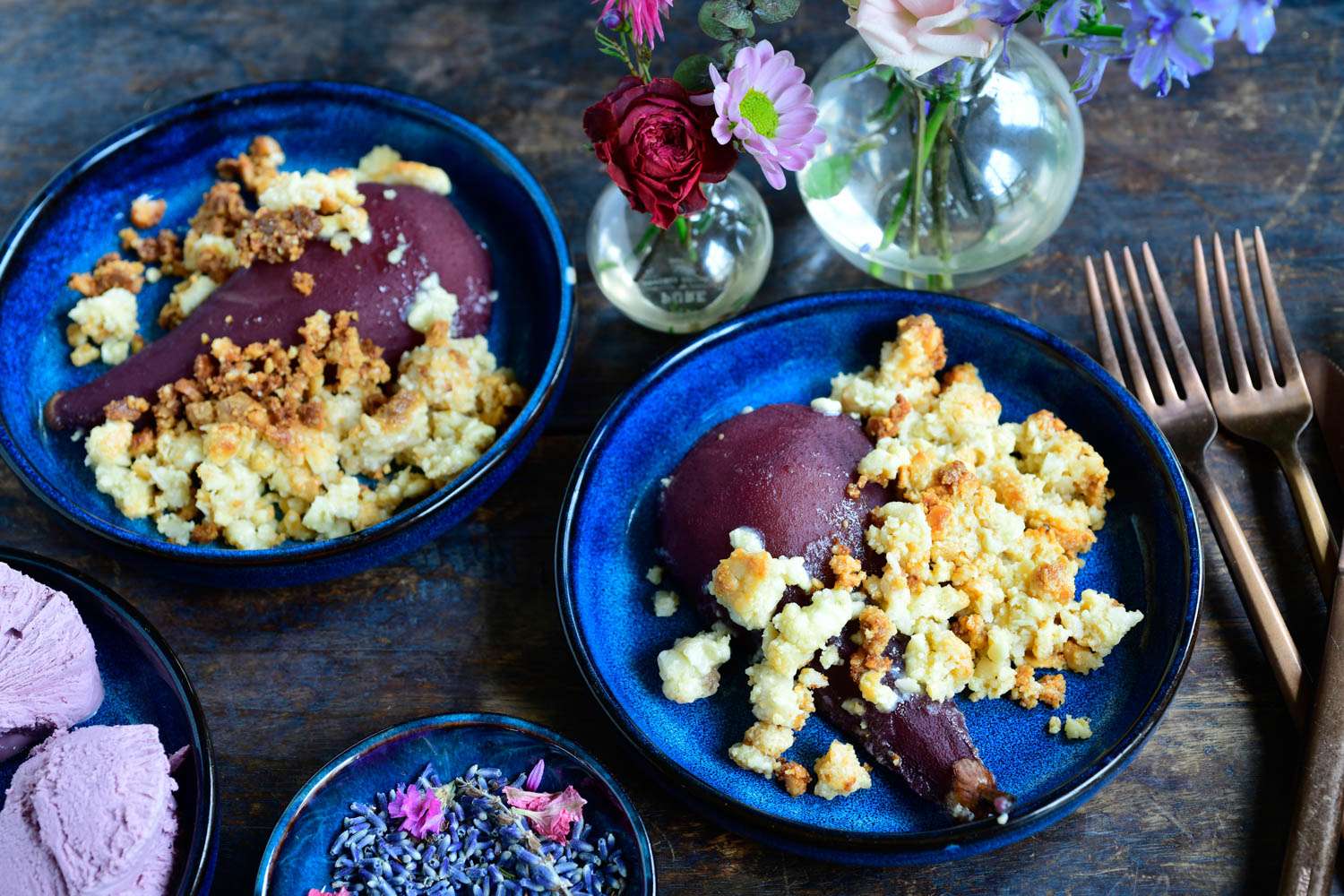
Poached pears in red wine from I Eat Like This 2.
Going out of turn is allowed!
It's not about the number on the scale, but about your health, feeling good, being energetic.
In life, nothing is black and white. Certainly not nutrition. I want to enjoy life and not exclude anything. My idea is that 70 to 80% of what you eat should be basic food. That means natural food that has something to offer your body: vegetables, fruits, nuts, seeds, fish, meat, eggs, ... In addition, 20 to 30% can be what I call comfort food: dessert, plain bread, French fries, breakfast cakes, ... It is that 100% that makes you a happy and healthy person.
Lowcarb
Moderately low-carbohydrate Mediterranean food is how Pascale prefers to describe her cuisine.
Mediterranean, because of the abundance of vegetables, fruit, fish, olive oil, ...
Moderately low-carb, because she ignores the modern, manufactured carbohydrates (plain bread, white rice, pasta, everything made with flour and sugar) and uses only the high-fiber, unprocessed carbohydrates, such as vegetables and fruits, chickpeas, lentils, quinoa, ...
Basically, it comes down to this: eat mostly natural unprocessed foods. Those who eat natural foods will automatically eat fewer rapidly digestible carbohydrates and consume more fat, because rapid carbohydrates are mainly found in processed foods, such as all foods made from flour and sugar. Unprocessed foods also contain more fat, there the fat has not been extracted as in light products such as low-fat yogurt.
"Actually, I would rather talk about 'normal' carb instead of 'low' carb."
- Pascale Naessens
We have begun to think it's normal to eat lots of processed carbohydrates. But what carbs did we used to eat? You'll hear about it in the video above.
"Don't focus on that number on the scale, feeling better is the goal, losing weight is the consequence."
- Pascale Naessens
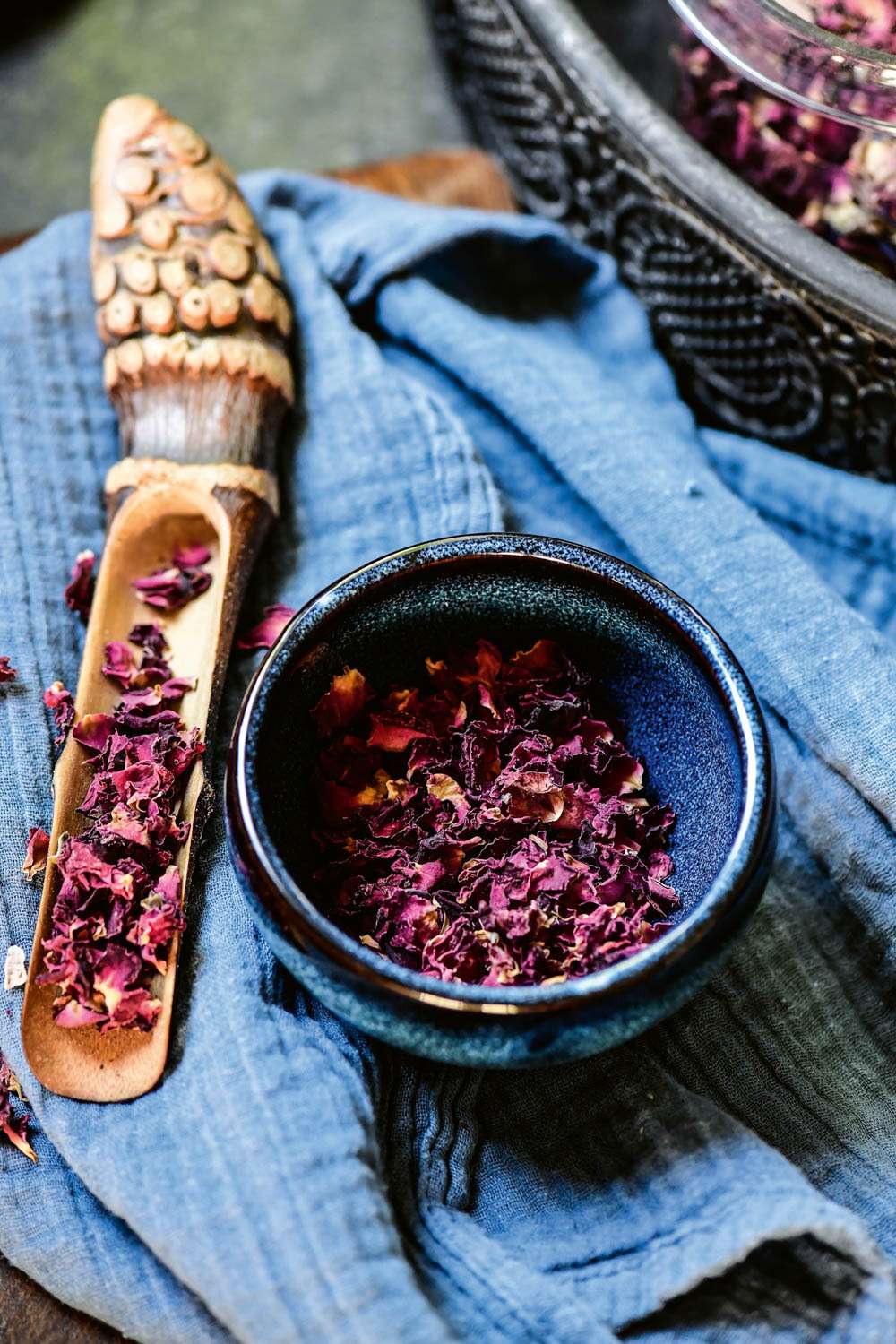
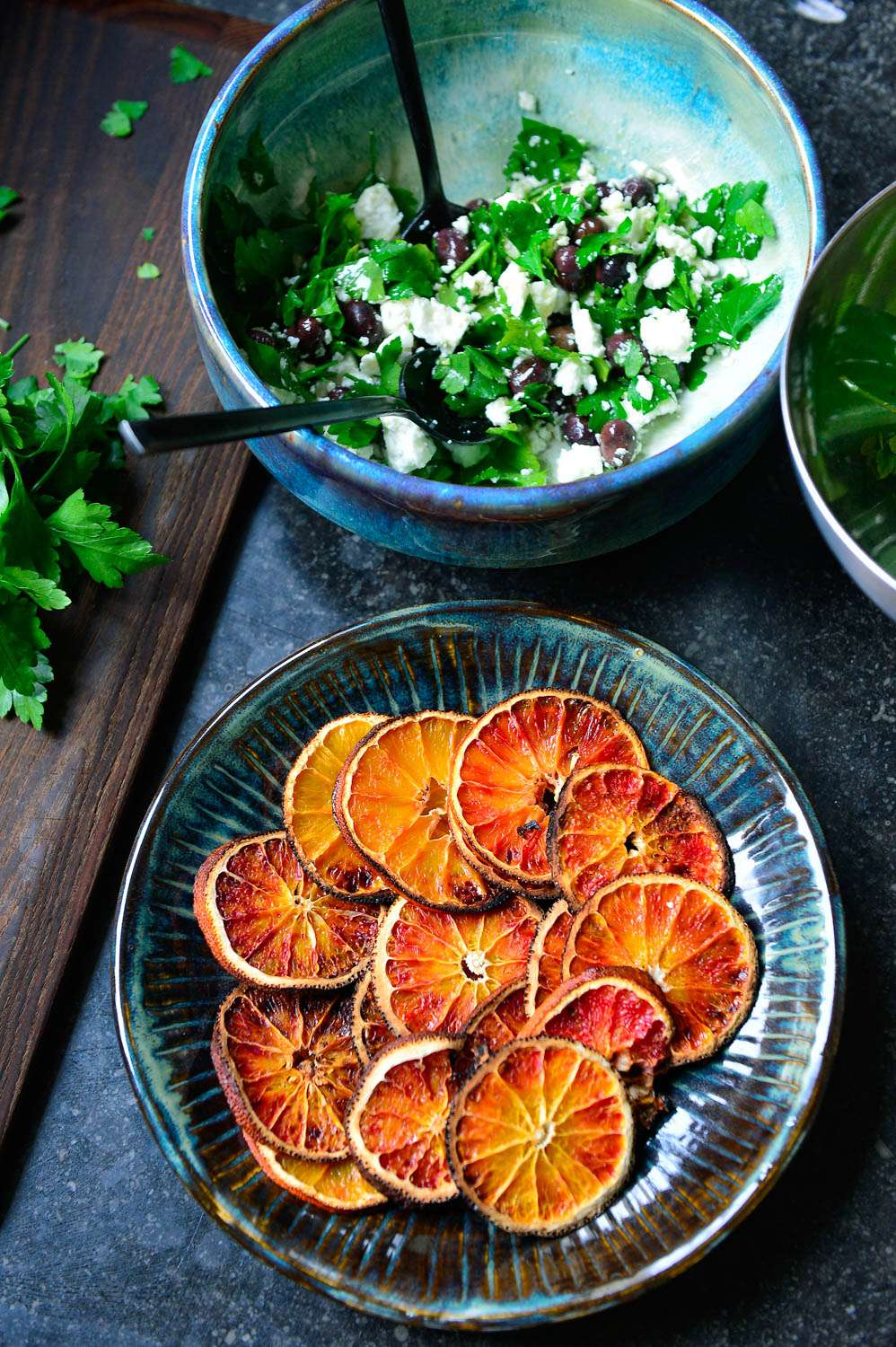
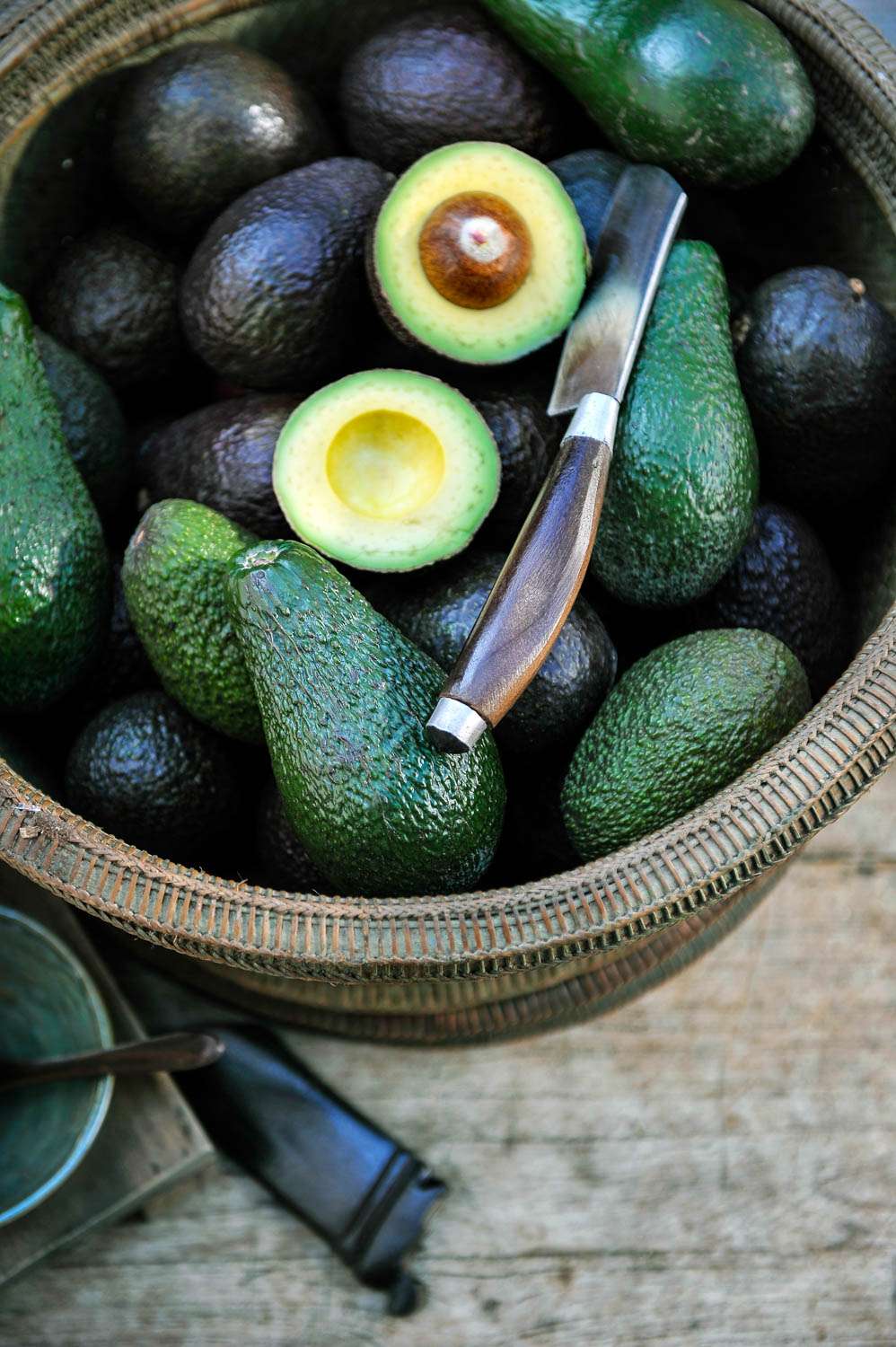
Health
What does this way of eating do for your health?
- It gives you more energy (blood sugar stays more stable).
- If you are overweight you lose weight (particularly satiating, so you eat less).
- You can scale back and control your type 2 diabetes (should you have it) in many cases.
- It lowers the risk of cardiovascular disease.
- She lowers your blood pressure.
- You make your gut happy with it (more natural foods, more fermented and more fiber).
- Some serious and minor health ailments disappear. Some see improvement in their rheuma-related conditions and bowel problems (see testimonials).
- People predisposed to eating disorders get a handle on it.
"I don't want to convince anyone to eat healthier; if you don't want to do it yourself, it won't work anyway. My books are there for people who like simple cooking and want to eat better."
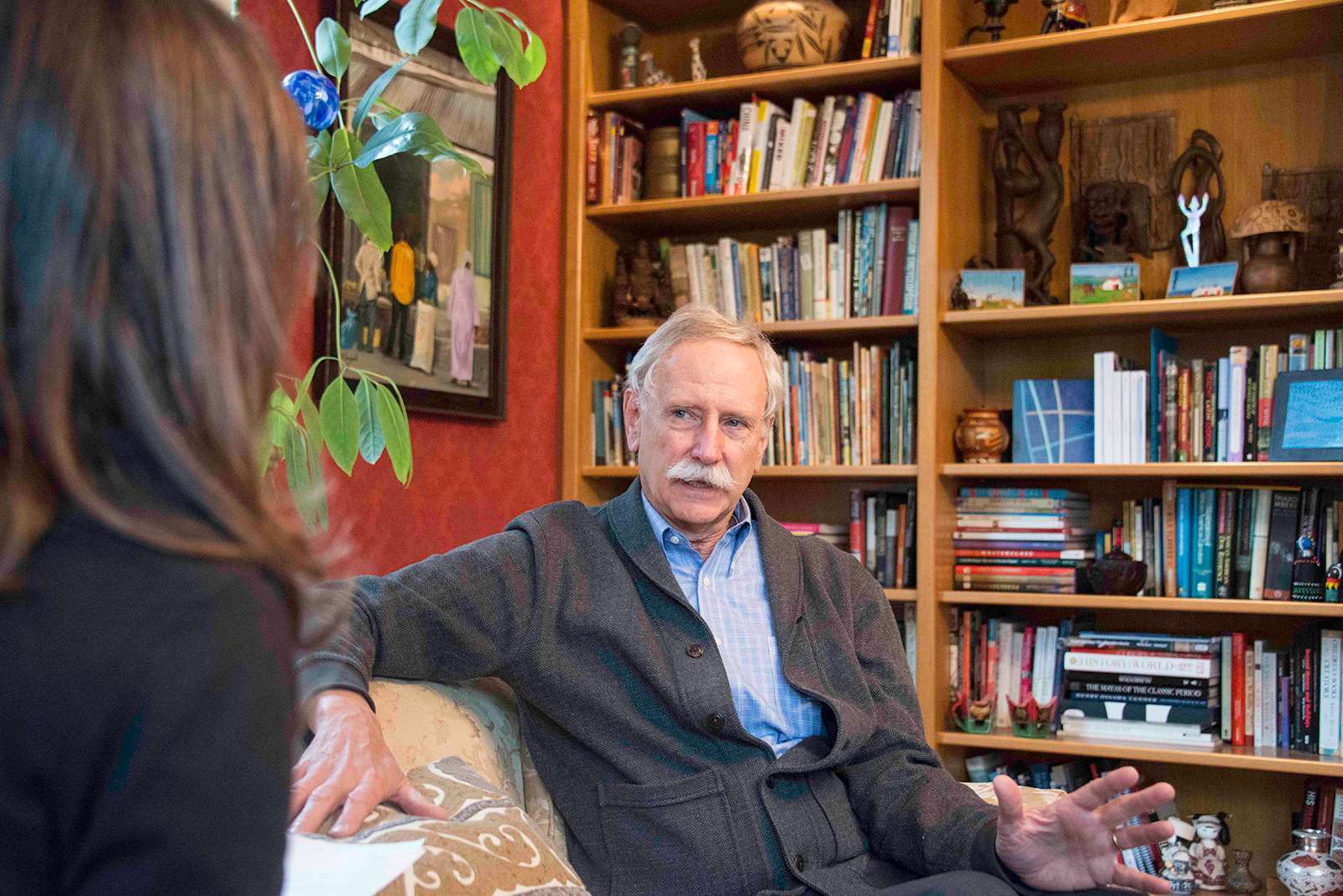
Pascale interviews Walter Willett of Harvard university
Where does Pascale get her knowledge?
My great teachers on healthy nutrition are Prof. Fritz Muskiet, Prof. Hanno Pijl, Prof. David Ludwig, Prof. Dariush Mozaffarian, Prof. Walter Willet and many others. I owe my knowledge mainly to them. I spent hours with them as they very patiently explained to me why things are going wrong with our current eating habits and why classical dietary advice does not work.
Meanwhile, I have gotten to know many other experts, often because they respond positively to my books. Sometimes a fascinating interaction develops. I interview them and integrate the latest new insights into my recipes and share them in my books.
I started studying nutrition science because I wanted to understand what was going wrong with my own eating habits. All my attempts to eat better I couldn't sustain, even though I was trying so hard. I followed classical nutrition, had a classically trained dietician and a psychologist assist me, and still I couldn't succeed. Either I was dieting or overeating myself and most of all, I was always deeply unhappy. That's why I started interviewing scientists, I wanted to understand.
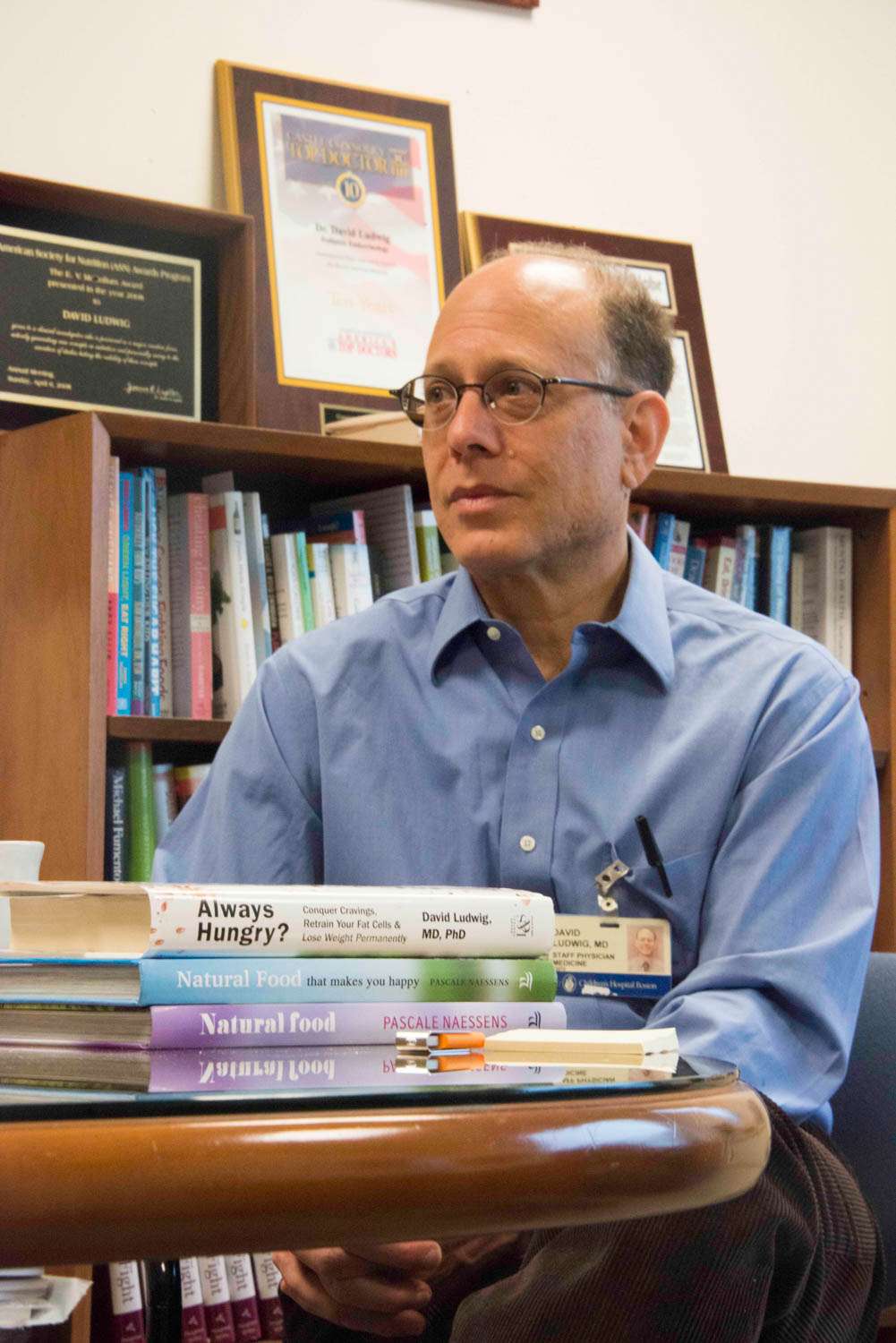
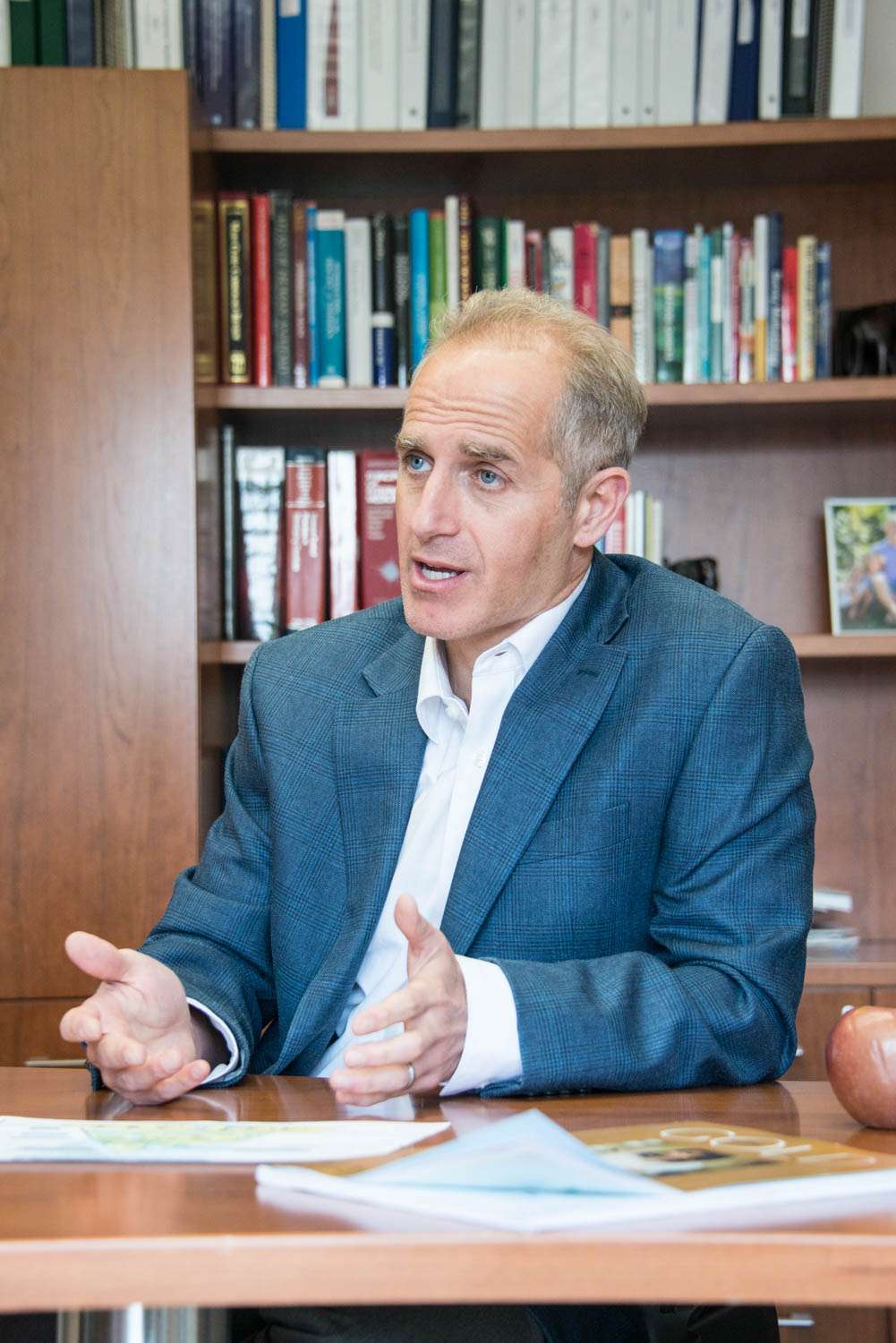
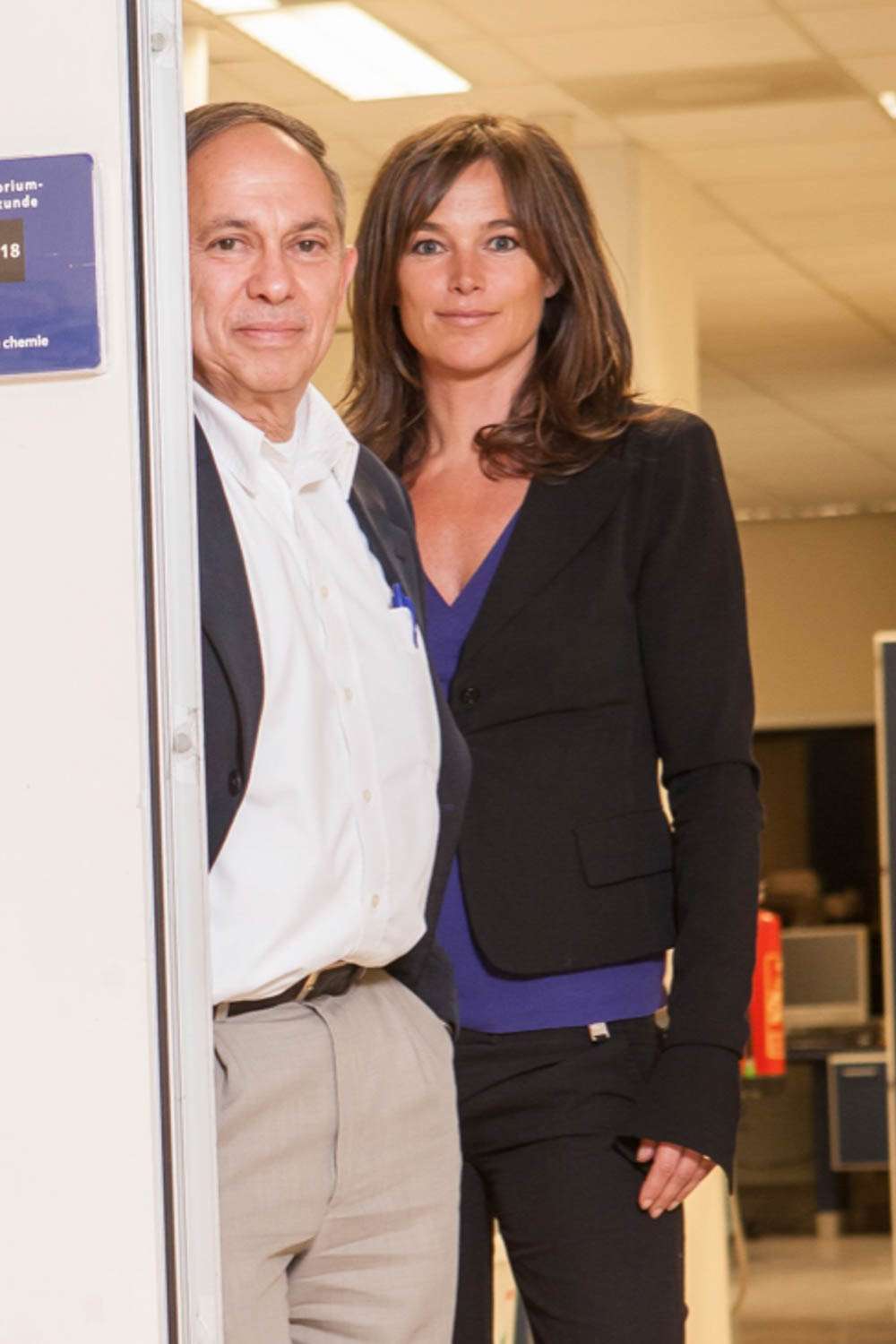
"I use the science around nutrition to make me feel better. I no longer suffer from 'cravings' or binge eating, have more energy, my skin has improved, and I no longer have 'moodswings.'"
- Pascale Naessens
My struggle
As a model, I wanted to be even slimmer.
After my first diet around the age of eighteen, I waged a battle with my eating habits for years. Either I was dieting or eating too much, resulting in the well-known yo-yo effect. I started seeking help from classical nutritionists, but even there things went wrong. The regimen they prescribed me to maintain my weight - I didn't even need to lose any more weight, because I had had enough - was not feasible for me. It was a diet based on counting calories and all fat I had to avoid. The result was that I was constantly hungry and craved food. Moreover, all that counting made me cranky. The consequence of all these restrictions and pent-up cravings were 'eating binges' and I craved only one thing: 'fast carbohydrates', i.e. bread, cakes, cookies, French fries... The result of these eating binges were blood sugar spikes, which in turn upset my hormones. So I was caught in a vicious cycle and caught in the addictive web of fast carbs.
I felt miserable because I could not stick to the specified daily calorie allowance that is normal for someone my size and age. So the problem had to lie with me, with my willpower or rather my lack of willpower. In any case, classical nutrition had succeeded in making me feel guilty.
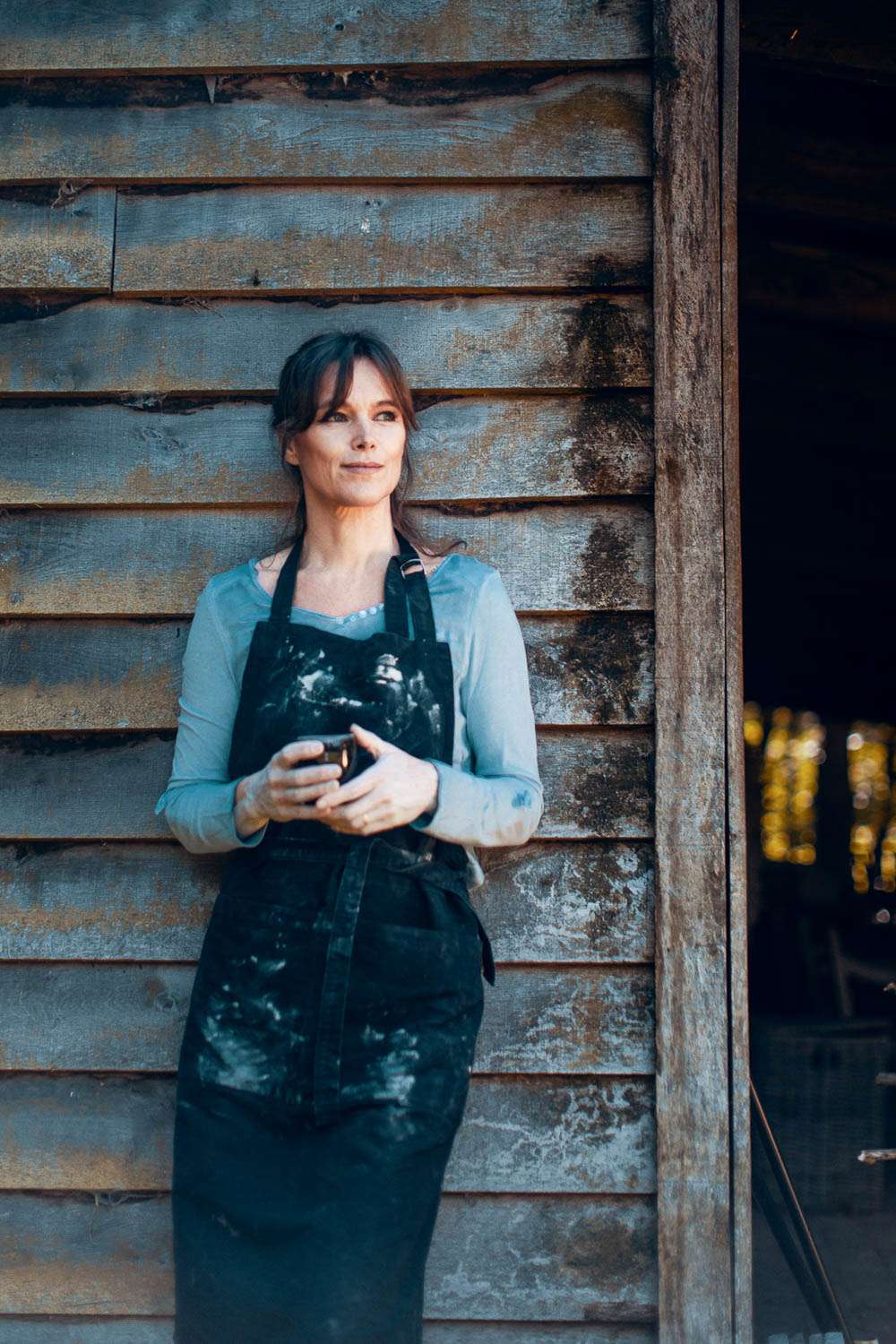
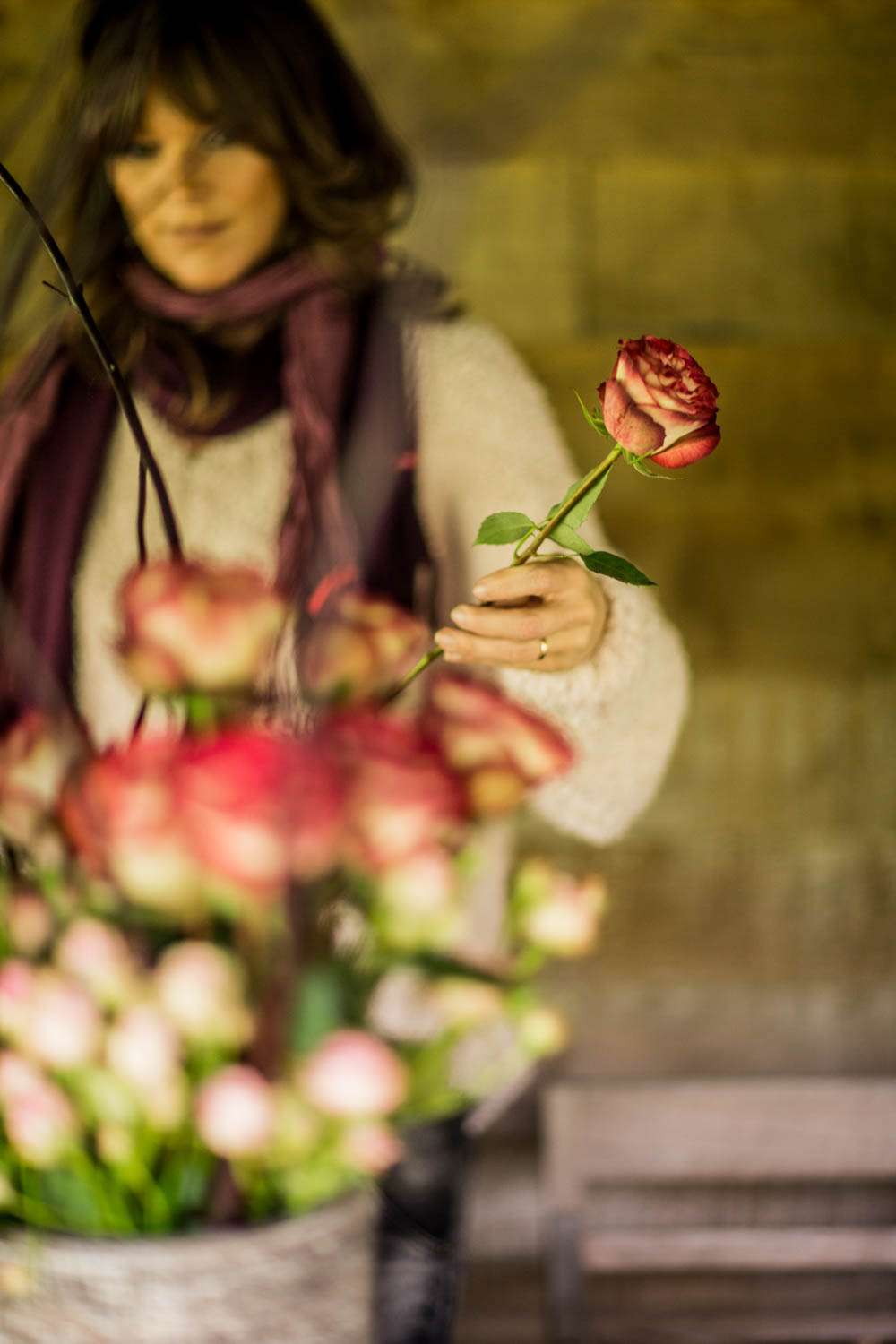
Down with diets, I hate diets.
Then my search for a different way of eating began. What was going wrong? After all, a human being is made to eat and more than just a leaf of lettuce or an apple. I started looking into the topic: what does nutrition do to your brain, what does nutrition do to your body. I still devour books and international scientific studies on nutrition and humans.
When I started eating differently, all my problems disappeared like snow in the sun. I can only say: I eat much more than before, much more varied, more fat, never 'light products', I don't count calories (that's outdated), I enjoy a glass of wine and every meal I eat my belly full. I enjoy myself freely, without any guilt and without gaining a single gram....
It's not even difficult or special. I don't have any secrets. Anyone can just follow it. It's a very natural way of eating and that's why it feels so good.
"Intuitive eating?
I am definitely a big proponent of intuitive eating, but in a world of abundance and full of temptations, intuitive eating is not given to everyone. Look around, most people eat intuitively. What's the consequence? More than 59% are overweight/obese and 1 in 3 children are obese. It's not just about obesity but also the risk of chronic diseases: diabetes, cardiovascular diseases, cancer ... (Figures WHO )
It is just understanding nutrition that is important. Rules and structure can provide guidance to build healthy eating habits, after which you can continue intuitively if necessary. Although I myself feel that I eat in complete freedom, I still stick to my basic rules (no bread and potatoes or other refined carbohydrates with meals).
That makes it all much easier than having to make new choices every day: Today? A little bit? How much? ...Compare it to people who choose to stop drinking alcohol altogether instead of drinking in moderation. Clarity is sometimes easier. Whatever choice you make, the important thing is that you can stick with it.
Bread and potatoes? Help, what a controversy!
I know there is always a lot of fuss when I say something about bread and potatoes. I am not so much "against" (I still especially like bread, too much, that's the problem!) but I am mainly in favor of good food. If you look at nutrition that way, there are simply much better choices to be made than eating potatoes and bread every day. The potato saved us from famine back in the day because it provides a lot of calories, but meanwhile we live in a world of abundance and there are much healthier choices to be made. Now we know that potatoes and plain bread mainly provide sugar spikes and that is precisely why they are so addictively delicious.
If you like to eat bread, choose sourdough or artisan bread. That still contains a lot of starch but provides fewer sugar spikes. But if, as with me, bread is one of your pitfalls, it may be easier to avoid anything made of flour and sugar as much as possible.
Would you like to have a potato with it anyway? Then eat it at the end of the meal, which makes the sugar spike less. The same goes for rice or other quick carbohydrates. For the same reason, it is better to eat dessert or other sweet after the meal and not on an empty stomach. And for the same reason I eat whole yogurt and seeds with fruit breakfast.
